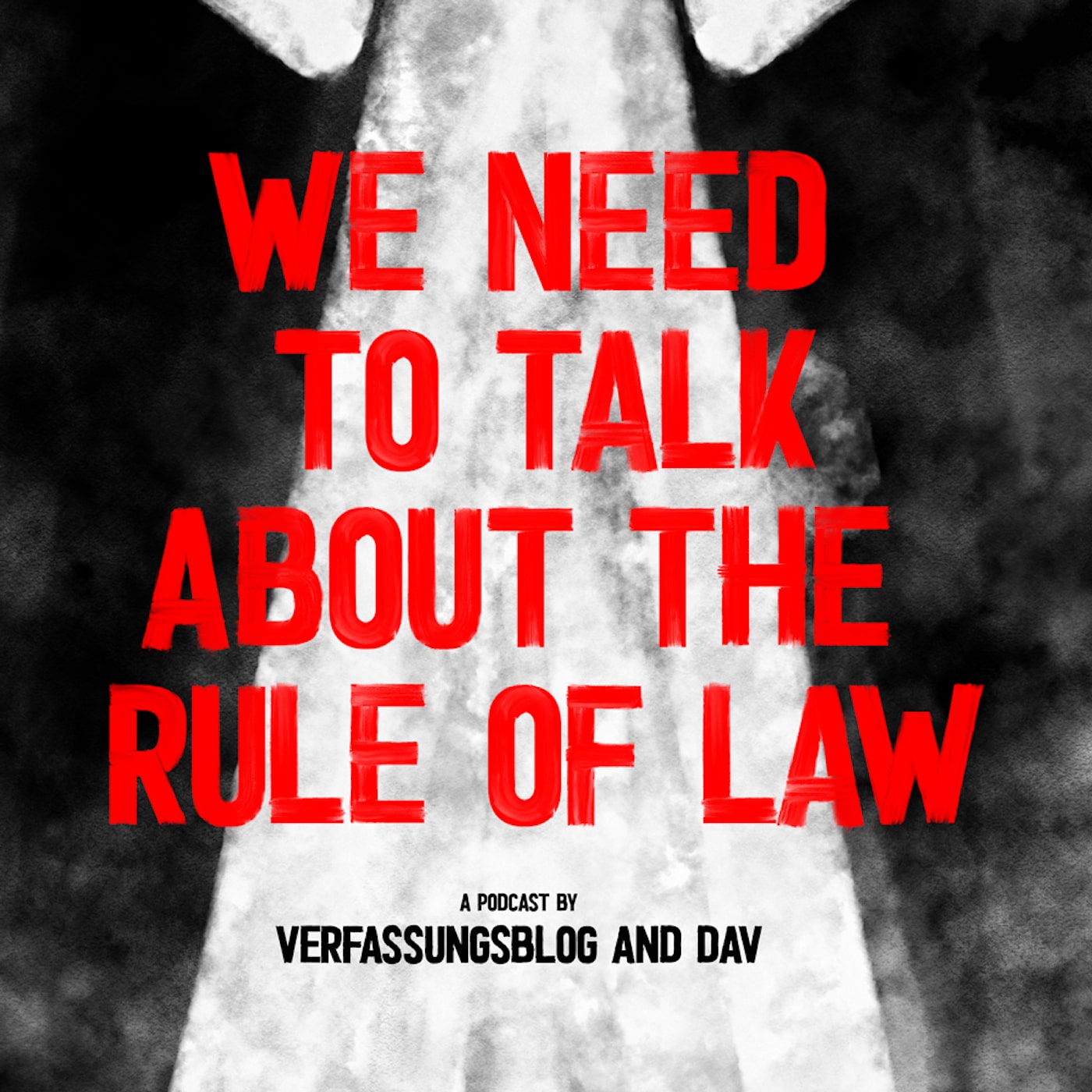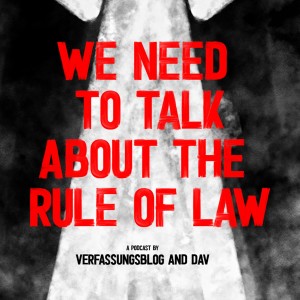
20.8K
Downloads
20
Episodes
Independent courts, judges who will withstand political pressure and rule against the will of the government if the law demands it. It’s called the rule of law, and as long as you have it, you rarely notice it. If you don’t have it, you’ll know what you miss – but then it’s too late. We need to talk about the rule of law because in a growing number of EU member states, the rule of law is already severely damaged - and we will all feel the consequences. We need to talk about the rule of law as Europeans, among Europeans. This is what we, Verfassungsblog and Deutscher Anwaltverein, want to do with this podcast. Twelve weeks, twelve episodes: Every week we invite a number of high-profile political and legal actors and experts to discuss the most urgent aspects of this topic. If you want to be part of this debate, please feel warmly encouraged, do send us your question, use the hashtag #lawrules or send us a speech memo on our Instagram account (@verfassungsblog).
Episodes

Friday Nov 25, 2022
#DefendingTheDefenders - Episode 2: Belarus
Friday Nov 25, 2022
Friday Nov 25, 2022
In the second episode of Defending the Defenders, we talk to Dmitri Laevski about the rule of law and human rights in Belarus. Dmitri is a criminal attorney turned human rights lawyer in the wake of the 2020 presidential elections.
He takes us through the recent history of the rule of law in Belarus, from realising that the concept he learned about in university didn't really exist in practice to the organisation of the legal professions in the last decade to the rule of law crackdown in 2020 and ever since.
Having himself lost his licence to practice law after defending dissidents, Dmitri offers insights into how it is like to be an attorney in a country where arbitrary detentions and prosecutions have become the norm while less and less attorneys are practicing law because of disbarments or because they are not willing to work under these conditions, leaving Belarus today with well under 1.800 lawyers for a population of 9.5 million people.
While there may be not much hope for a return to the rule of law unless there is political change, Dmitri says, there is a number of things that can be done to support those fighting for human rights in Belarus: Bar associations and agencies should not recognise the Belarusian Bar Association as a proper counterpart. Lawyers who have been deprived of their licences in Belarus due to political reasons should be recognised as human rights lawyers internationally, especially in Europe. They could also be supported by being given the ability to work remotely with colleagues in Europe. Finally, it is important to include these lawyers in the European legal community and communicate with them, Dmitri says. Further information on the crisis of the right to defense can be found in a report by the Center for Constitutionalism and Human Rights (available in english soon).

No comments yet. Be the first to say something!